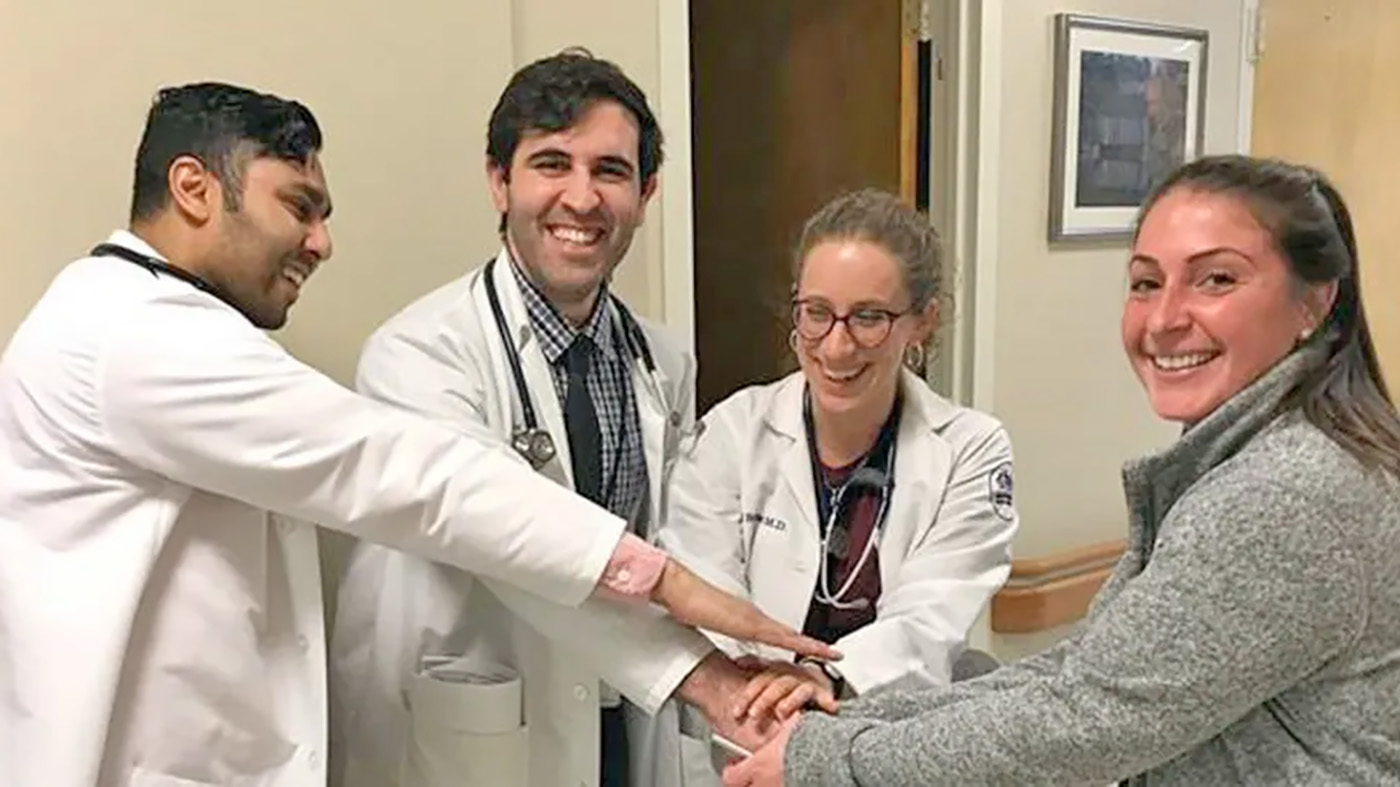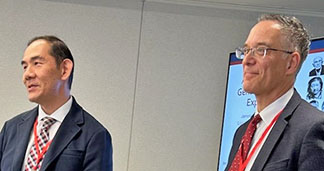Physicians, nurses and staff members at Bedford VA are being recognized for their interprofessional clinical learning environment and novel approach to training residents.
The learning model, which was recognized by the National Collaborative for Improving the Clinical Learning Environment (NCICLE) conference at the Accreditation Council for Graduate Medical Education in Chicago, supports interprofessional education and collaboration through team-based clinical learning environments for health professions trainees.
The model includes an innovative approach to teaching and learning geriatric medicine as well as supporting trainees through an environment of psychological safety, building relationships and support for clinical workflows.
The program has also shown that subacute rehabilitation and long-term care facilities can serve as high-quality clinical learning environments for geriatric education, which traditionally takes place in hospitals or outpatient clinics. This could potentially open more training sites and opportunities for learning about geriatrics and interprofessional care.
“We built this curriculum from the ground up just as part of what we do at Bedford VA. To have it recognized as an exemplar of a team-based clinical learning environment is an incredible honor,” said Associate Chief of Staff for Education Dr. James Meisel.
Meisel sees the program, along with VA’s relationship with six Boston-area academic affiliates, as critical to their success in improving the clinical learning environment.
“We see affiliates, program directors and their trainees as our partners with a shared goal of offering the most relevant, high-yield educational experiences possible. Veterans entrust us with providing world-class care and affiliate program, and directors entrust us with training their residents. We take those responsibilities very seriously,” he added.
Dr. Ryan Scilla, associate director of Medical and Dental Education for the Office of Academic Affiliations (OAA), nominated the VA Bedford team for the NCICLE conference and said the program stood out for how it optimizes teaming in the clinical learning environment—a shared goal of both OAA and NCICLE.
“This resource will become more relevant in years to come.”
“This excellent resource clearly demonstrates that high-performance teaming is an essential part of interprofessional learning and development. With an increasingly aging U.S. population, this resource will only become more relevant in the years to come—in both VA and non-VA learning environments,” Scilla said.
Academic affiliates in the Boston area send residents to train at the VA Bedford Medical Center. Boston University Medical Center Geriatrics Fellowship Program Director, Dr. Ryan Chippendale, sees VA’s commitment to training their residents as a truly immersive experience.
“On the Geriatric Medicine rotation, fellows have the opportunity to learn from physicians, nurses, physical and occupational therapists, speech language pathologists and more to enhance their skillset in providing comprehensive care to complex older patients. VA Beford’s commitment to geriatric excellence is unwavering and we have been fortunate to partner with them,” Chippendale said.
The feeling is mutual for VA Bedford Medical Center Director, Dr. Joan Clifford, who sees academic affiliates as key players in the success of the program.
“Our academic partners are critical to our ability to meet our mission to educate future health professionals. VA staff who have academic appointments express personal and professional satisfaction in being able to work with students and residents, keeping them up to date with current practices,” said Clifford.
As for the team-based clinical learning environment at VA Bedford, Clifford is proud of the extensive educational opportunities available to residents. “The focus on interprofessional training is unique and a welcome addition to our training programs. Over my years of practicing as an RN, I can attest to the value of learning together, presenting different perspectives, and appreciating differences and similarities.”
Meisel agrees and believes part of the success it achieves is due to infusing humanism into the clinical learning environment. “We use multiple approaches to optimize trainees’ cognitive load. Residents tell us how much they appreciate the humanism that the rotation brings to their training,” Meisel said.
For employees at VA Bedford, working in the interprofessional environment with residents brings about positive benefits for everyone, not just residents. “I feel like the residents bring a new energy. They also are very innovative because they are learning,” said Devan Holliday, Bedford VA social worker. “I think their curiosity has brought back my curiosity.”
NCICLE will disseminate VA Bedford’s team-based Geriatric Medicine Rotation curriculum nationally and make its work publicly available as a best practice for other NCICLE member organizations. The mission of training future health professionals for VA and the nation, established more than 75 years ago, is one of VA’s four statutory missions and is overseen by OAA. Nearly 70% of all U.S. physicians complete training in VA and more than 118,000 health professions trainees in over 60 clinical disciplines train at VA each year as they care for Veterans.
Topics in this story
More Stories
Bob Jesse Award celebrates the achievements of a VA employee and a team or department that exemplifies innovative practices within VA.
The Medical Foster Home program offers Veterans an alternative to nursing homes.
Watch the Under Secretary for Health and a panel of experts discuss VA Health Connect tele-emergency care.







